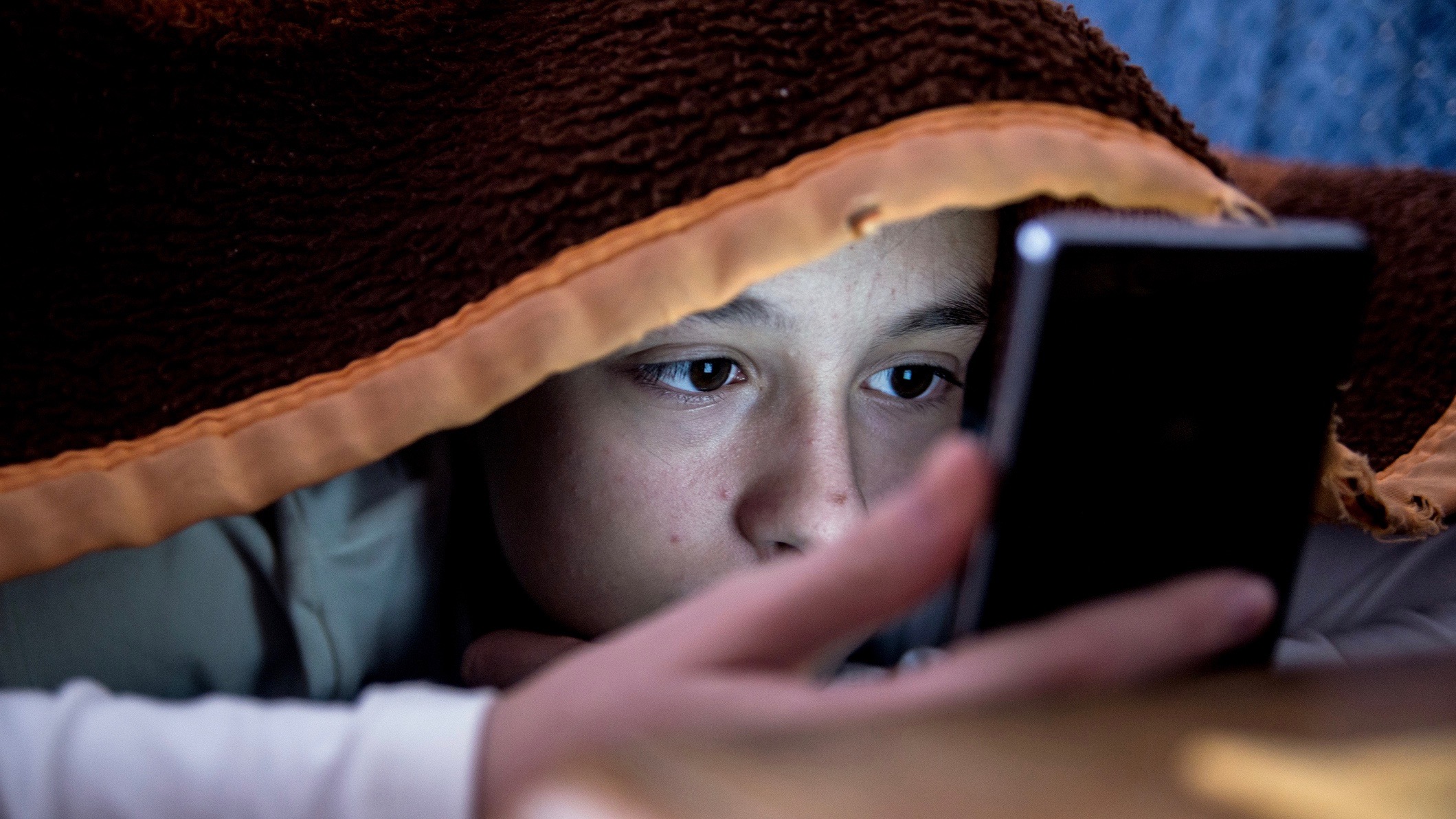[ad_1]
We all have days when we use our phones right before going to bed, even though we know we shouldn’t. Admit it. We know our phones keep us awake. Some people try to mitigate the negative effects on sleep with blue-light glasses, which claim to block out rhythm-affecting blue tones in screen light, but if you’re using a fitness tracker (and if you are, it’s probably one of the best sleep trackers or best fitness trackers from our lists) you’ve likely had at least one morning when you’ve woken up, checked your stats and seen exactly how little sleep you had the night before.
It turns out, it’s not the blue-light effect from your phone that’s keeping you awake at night, according to sleep scientist Dr Sophie Bostock. I met Dr Bostock at an event to celebrate the launch of the OnePlus Watch 2 Nordic Blue in Helsinki, and she was able to answer a few burning questions about late-night phone use.
“There are several aspects of light which affect your circadium rhythm. Brightness of light is really important. If you get very bright light it’s going to activate the receptors, which contain a pigment called melanopsin, in the back of your retina. This sends a message to the clock in your brain which tells you to be alert.
“This pigment is more sensitive to light in the blue visible end of the spectrum, true, and when you look at a phone, it tends to be rich in blue wavelength light. But that is completely irrelevant if the light from your phone is very dim.
“The light you typically get from your phone is about 80 lux. Usually, in the studies used to look at impact on your circadian rhythm, you expose someone to at least 2000 lux, perhaps 5,000 lux. A SAD lamp is usually 10,000 lux. The light from your phone’s impact on circadian rhythm is negligible.”

So if it’s not the blue light beaming from your phone, what’s actually keeping you awake? Dr Bostock had the answer.
“Research has found using the bright light element of your phone only delays sleep for around 10 minutes. People getting locked into losing track of time, delaying sleep because of what they’re doing on their phone, probably delays sleep by closer to an hour. Relative to that sleep displacement, the blue light exposure is negligible.”
Fear around phones comes from massive large-scale studies that state people who use phones before bed sleep really poorly, so the conclusion was always ‘phones must be causing poor sleep’.
“There are two more aspects to consider. One is that people leave their phone by their bed, while it pings and alerts during the night… but phones can be helpful, some people use it as a distraction. Audiobooks are phenomenally popular.”
While Dr Bostock’s main advice is to keep your phone out of the bedroom to avoid the temptation to doomscroll, if you use it to play sleep-aid content, it’s perhaps worth keeping it across the room on another surface, out of arm’s reach.
You might also like:
[ad_2]
Source Article Link

